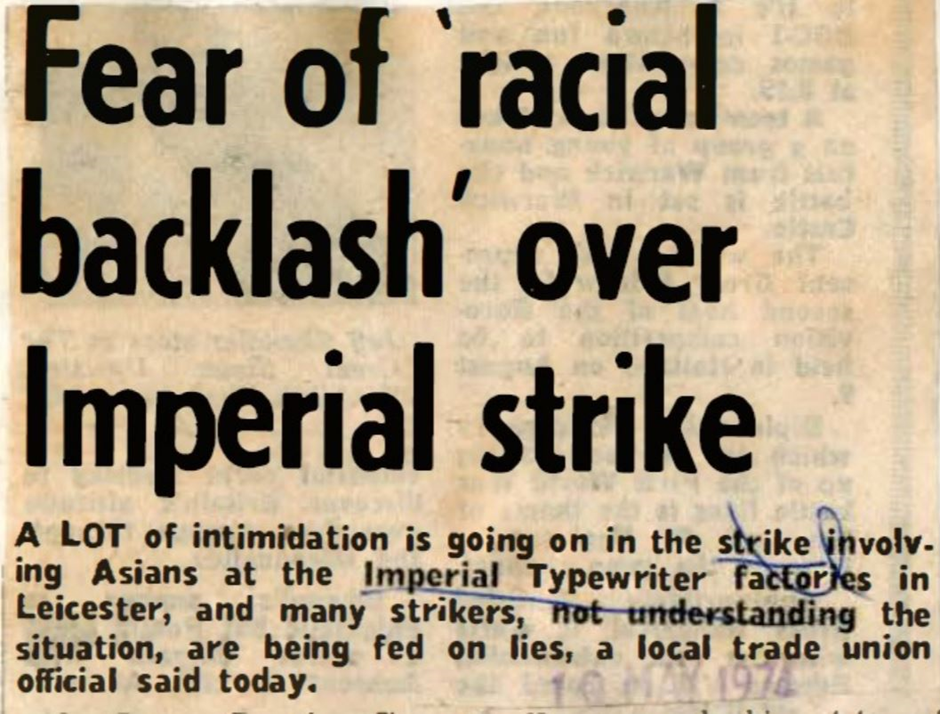The Imperial Typewriters Strike in 1974 saw hundreds of mainly Asian workers go on strike and protest against discrimination and unfair working conditions.
Established in 1908, Imperial Typewriters was bought by a US firm in the 1960s which recruited heavily from Leicester’s Asian population and employed a high proportion of women. The new employees made up about 1,100 of the 1,600-strong workforce. White workers remaining at the firm were given special privileges by the mainly white shop stewards, reflecting the racism underlying formal labour organisation.
When the Asian workers turned to their union for help, they were met with a harsh response. The union negotiator wrote to the strikers: ‘you are ill-led and have done nothing but harm to the company, the union and yourselves.’ Fear of unemployment was employed as a strategy to keep the workers in passive servitude. Grievances worsened when a mix-up at the Imperial Typewriters factory in Leicester saw an Asian woman mistakenly given the pay packet of a white colleague which revealed the discrepancy in pay between white and Asian workers of the same grade.
On May Day (the day of international working class solidarity), 39 Asian workers walked out and they were soon joined by about 500 more. Within a few days, production fell to 50% of normal and fell much further as the strike entered its fifth week; the withdrawal of labour had achieved its desired effect.

The strikers attracted support from across the country with donations from sympathetic labour and Asian community organisations across the country. However, they lacked official support as the local Transport and General Workers’ Union (TGWU) negotiator claimed the group had ‘not followed the proper disputes procedure’ and ‘have no legitimate grievances.’ The union refused to make the strike official, saying ‘some people must learn how things are done.’
As the dispute went on, more workers were fired and by the end of July, most of the strikers were sacked. A two-week summer shutdown essentially ended industrial action. Soon after, the factory was shut down with many claiming that the strike was a ‘nail in the coffin.’
Although unsuccessful in their attempts, the mainly female Asian workers challenged the stereotype of being ‘submissive’ and demonstrated knowledge of their rights and their willingness to fight racial discrimination and sexist attitudes in the workplace. The Imperial Typewriters Strike was a key moment in galvanising Asian working class resistance in the UK.

